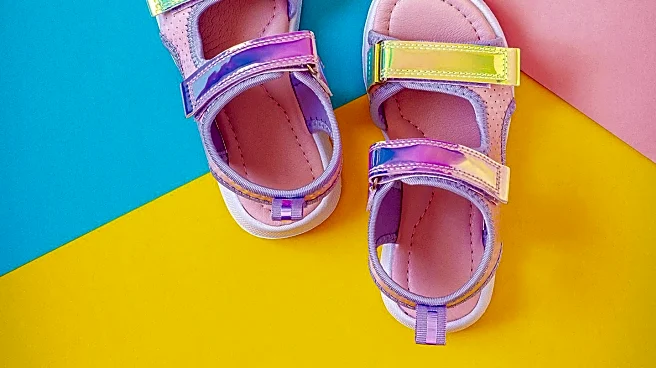What's Happening?
Millennial parents are increasingly adopting a parenting style that fosters close bonds with their children, often referred to as raising 'Velcro kids.' This approach emphasizes constant contact and emotional closeness, contrasting with previous generations'
more independent child-rearing practices. Parents like Frankie Acevedo, who shares his experiences on social media, highlight the benefits of creating a safe and nurturing environment. However, experts caution that while this style can enhance emotional intelligence, it is crucial for parents to set boundaries and teach children to tolerate frustration to prevent over-dependence.
Why It's Important?
The shift towards 'Velcro parenting' reflects broader changes in societal attitudes towards child-rearing, emphasizing emotional intelligence and close family bonds. This trend could influence future educational and psychological approaches, as children raised in such environments may exhibit different social and emotional skills. While fostering a secure attachment is beneficial, experts warn that without proper boundaries, children may struggle with independence and resilience. This parenting style could impact the development of future generations, shaping their ability to navigate challenges and interact socially.
What's Next?
As 'Velcro parenting' gains popularity, there may be increased demand for resources and guidance on balancing closeness with independence. Educational institutions and child psychologists might develop new strategies to support parents in fostering healthy emotional development while encouraging autonomy. Additionally, social media platforms could play a role in disseminating parenting advice and facilitating discussions among parents about effective practices. The ongoing dialogue may lead to a more nuanced understanding of the benefits and challenges associated with this parenting style.
Beyond the Headlines
The rise of 'Velcro parenting' may also prompt discussions about the role of technology in parenting, as social media becomes a platform for sharing experiences and advice. This could lead to ethical considerations regarding privacy and the impact of digital exposure on children. Furthermore, the trend might influence cultural perceptions of parenting, challenging traditional norms and encouraging more diverse approaches to child-rearing.















